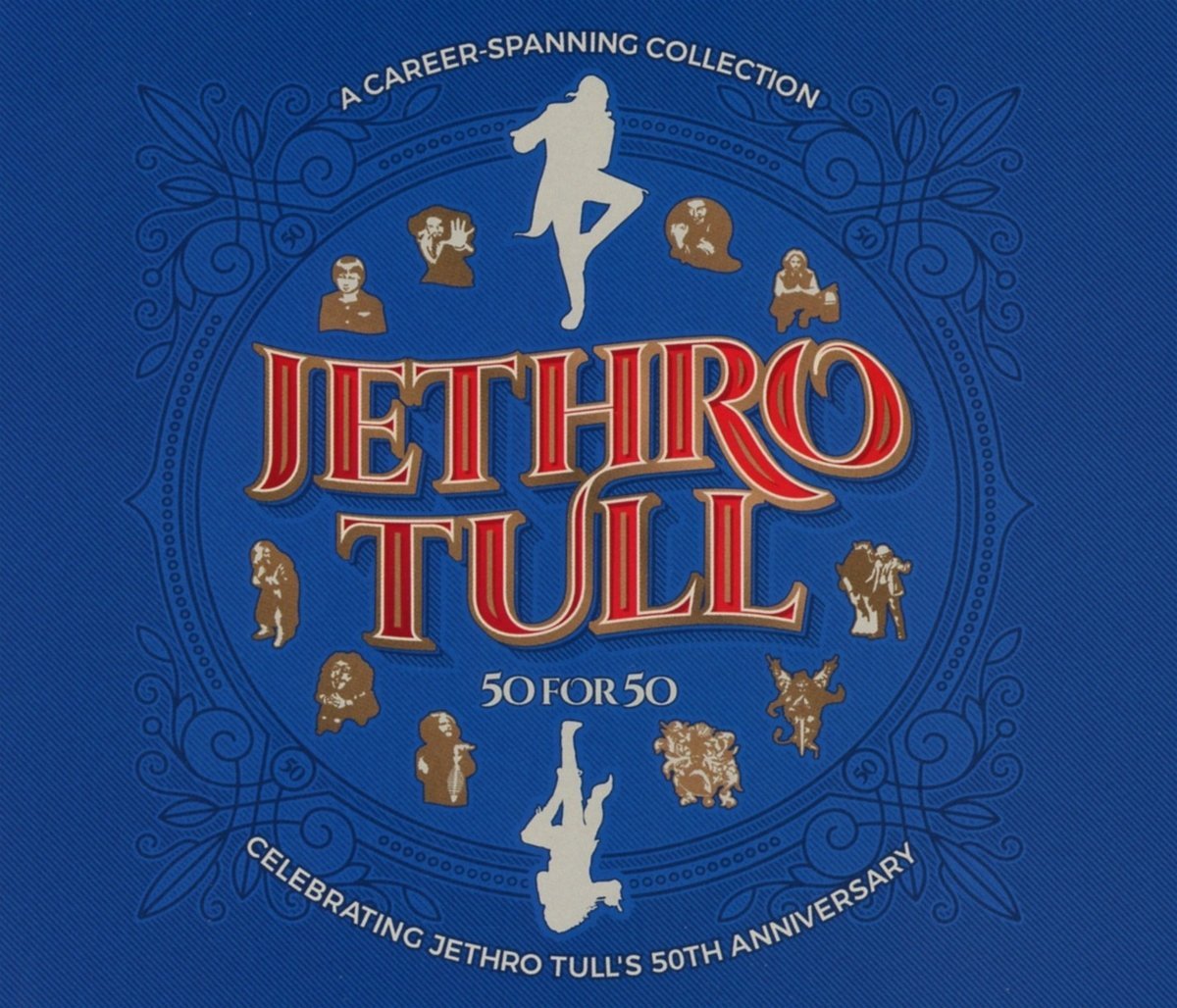While credible half-century anniversaries with a full-provenance band can be reasonably counted on the number of hands needed to pick up a flute, it’d be a churlish cove who denies Jethro Tull’s admission into this rarefied club. Singularly helmed, driven and shepherded by the idiosyncratic multi-instrumentalist Ian Anderson, the band’s furrow and trajectory is analogous to none. A boiled-down precis of this – British blues into folk-informed agrarian rock subsequently given a light synth polish – tells only a partial story, one that’s fully illustrated here.
Though hardly underrepresented in terms of greatest hits releases (well into double figures), this three-disc collection immediately trumps and supersedes all before it with a coherence and scope that’s positively delightful. Cherry-picked by Anderson himself and eschewing any strict chronology, there’s a flow that befits a man who knows his way around lengthy arrangements.
It’s hard to get a decent overview of a band with 21 albums in their back pocket, and shorter compilations have always reflected this, throwing up frustrating sins of omission largely due to limitations of the form. There’s none of that here. Wheat-heavy, chaff-light, the seeds are precisely scattered and cohere like a dream. Space precludes too many examples, but pairing North Sea Oil with Steel Monkey, Weathercock with Cross-Eyed Mary, and the triple whammy of Bourrée, Dun Ringill and Heavy Horses is both bold and effective.
Highlights are legion, and while there’s an absence of any genuine obscurities, hearing One White Duck (Minstrel), Salamander (Too Old), Really Don’t Mind (Thick) and Moths (Heavy Horses) out of their original context brings a fresh perspective to their considerable charms.
A smattering of tracks from Crest Of A Knave also reward, though Farm On The Freeway sails perilously close to Dire Straits waters. Rocks On The Road (1991’s Catfish Rising) near enough encapsulates the band’s career in one song, and the use of flute then harmonica as blues-riffing guitar on 1968’s A Song For Jeffrey still startles at a 50-year remove.
Ending the collection with Locomotive Breath exemplifies Anderson’s approach to its assembly (and presumably his feelings on the track itself), and proves a fitting coda to a substantial and considered collection. A cup of wonder indeed.

